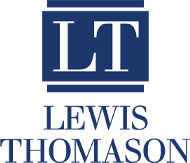The article below first appeared in the Tennessee Bar Association’s August 2020 Business Law Connect, an e-newsletter for section members.
While there has been a significant amount of media attention regarding the COVID-19 liability bill signed by Gov. Bill Lee on Aug. 17, Tennessee businesses should be aware that the liability immunity granted by the legislation is not absolute. Perhaps more importantly, businesses potentially facing claims related to COVID-19 exposure should understand how to best position themselves to use the provisions of the legislation as a cost-effective defense against unsubstantiated lawsuits. It’s simple: Use common sense business practices in protecting your customers and others on your premises. (Of note: The new law does not affect workers’ compensation laws.)
The Tennessee COVID-19 Recovery Act provides liability protection against COVID-19 exposure lawsuits based on claims of negligence. It does not, however, protect against claims based on gross negligence or willful misconduct. While avoiding the willful misconduct exception is (hopefully) obvious, businesses also want to have and keep practices and procedures in place to avoid any claim the business was grossly negligent, which Tennessee courts have characterized as a “callous indifference to consequences.”
Perfection is not required for businesses in Tennessee to be provided liability protection under this new law, but good faith is. The implementation of “policies and procedures to prevent or minimize the spread of COVID-19” is an action that is specifically encompassed in the legislation. While guidance from local, state, and national authorities has changed — and is likely to continue to change — during the health crisis, businesses should make reasonable efforts to continue to follow the procedures they should already have in place based on current guidance. And those policies and procedures need to be updated if and as that guidance changes in the future. In doing so, companies are putting themselves in the best position to defend against a claim related to COVID-19 exposure and limit their liability under the provisions of the new legislation.





